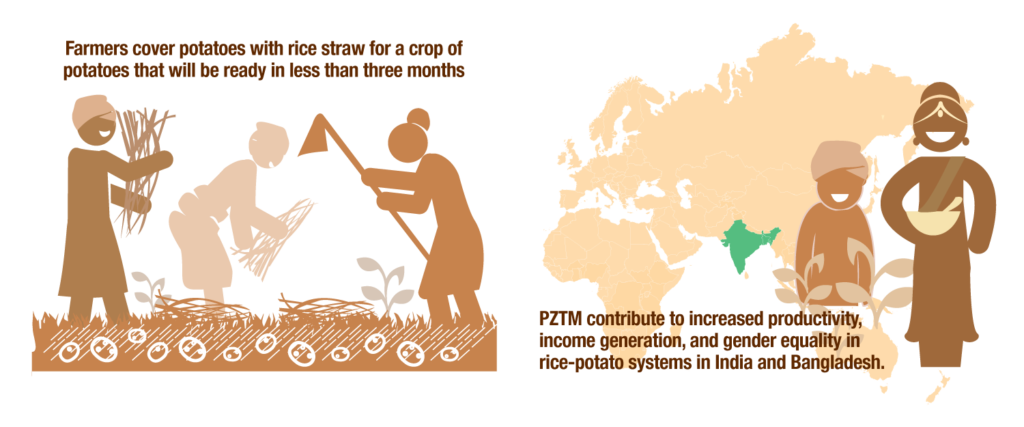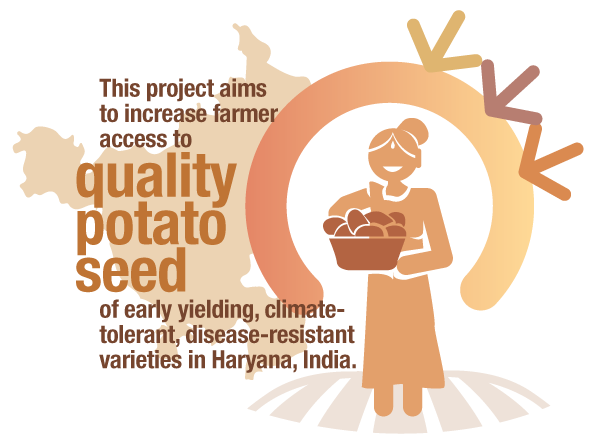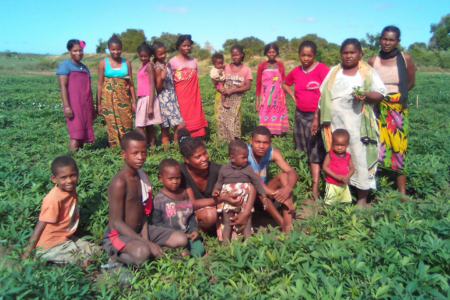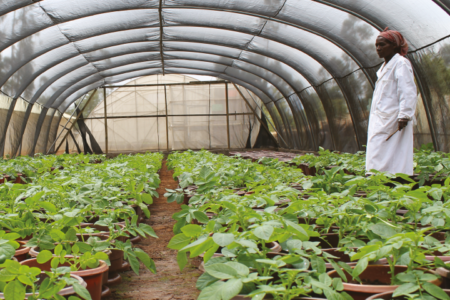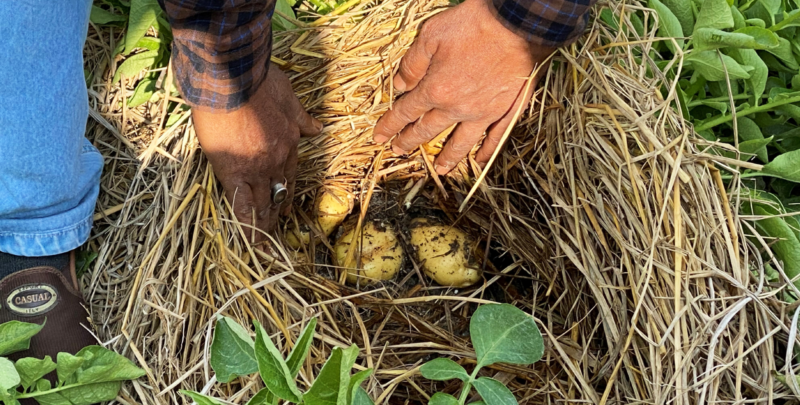
An innovative technology for sustainable intensification and diversification of cereal-based systems to improve livelihoods of small-scale farmers in Asia.
Innovative technique to sustainably intensify agricultural production with potato uses few inputs and residues from the previous crop without disturbing the soil.
Background
Food production needs to increase significantly to feed a growing population. Current agricultural practices involve extensive use of inputs, such as fertilizer, pesticides, and herbicides, which come with detrimental environmental effects. Agriculture also accounts for 70% of freshwater use globally, driving water scarcity in some areas. The impacts of climate change will likely exacerbate these issues. In India and Bangladesh, rice straw burning is commonplace which results in bad air quality in rural areas and worsening air quality in urban centers, such as New Delhi. Also, agricultural production is often characterized by a gender inequitable balance, which means that men are frequently the decision-makers, controlling the production of main agricultural commodities.
The innovative farming practice of potato zero-tillage and mulching (PZTM) has the potential to address many of the above-mentioned issues and, as such, significantly contribute to a sustainable agroecological transformation in India and Bangladesh. Key to this practice is the efficiency principle, by increasing resource-use efficiencies of major inputs. It recycles straw as mulch, creating value for a residue that would have been burned otherwise. As PZTM is associated with economic gains as well as women’s empowerment, it improves rural livelihoods and promotes gender equity, and as such adheres to the principle of human and social values.
Objectives
- Increase gross margins among farmers who introduce PZTM into existing rice-potato systems. For farmers without past potato experience, the introduction of PZTM into rice-based systems allows them to cultivate an additional crop to increase food production and profits.
- Improve soil quality through PZTM by reducing inputs (such as water, fertilizer, pesticides), carbon sequestered in the soil, and reducing CO2 emissions from burning of rice straw and soil operations.
- Improve the status of women through tasks performed in PZTM creating employment opportunities for them. In addition, women gain knowledge, authority and selfconfidence through participation in PZTM training and taking on the role of promoters.
- Increase adoption rates of new technologies by using video-mediated extension services.
Approach
Smallholder farmers in Bihar, India and Bangladesh and Bihar, India – where poverty rates are among the world’s highest – will receive training and extension services in potato zero-tillage and mulching. In India, the approach will be to produce and disseminate PZTM videos and organize agronomic trials. In Bangladesh, the focus will be on providing potato cultivation kits, training, and organizing PZTM demonstration trials. The project will target women for participation in the training. We will use quantitative and qualitative methods to analyze the impacts of PZTM, especially on agricultural production and socio-economic outcomes.
A randomized controlled trial will be implemented in Bihar, India. The overall study design has 1 control group (conventional potato cultivation) and 1 treatment group (PZTM) with two additional sub-treatment arms to assess socio-economic and environmental effects of this innovative practice. An additional approach will be employed to analyze the effectiveness of video-mediated extension. Scientists will randomly select 200 villages of which 120 will receive the treatment, and 80 serve as control. In each village, 10 households will be randomly allocated to be either in the control or treatment group. The total sample size will be 2,000 households.
The agronomic aspects of PZTM will be assessed in each system, including yield effects and soil health. Soil samples will be collected in on-station and on-farm trials, as well as from the field of farming households participating in the trial. The evidence will also be used to determine potential options for scaling PZTM, for example through women self-help groups. Qualitative interviews in both countries will be conducted to get insights in the socio-economic effects of PZTM.
Expected outcomes
The technology will contribute to sustainability, increased productivity, income generation, and gender equality in rice-potato systems in India and Bangladesh. Female and male smallholder farmers who will be trained in PZTM are qualified for the technique and apply it properly.
The project will assess and make available evidence-based recommendations for the implementation of PZTM. The research team will disseminate findings in peer-reviewed open access journals. It will make gender-sensitive recommendations for the use and dissemination of PZTM and will make it accessible to the public and relevant stakeholders.
It is expected that the project will contribute to strengthening advisory capacities for the scaling of PZTM with a gender focus. As such, women self-help groups will be successfully qualified as multipliers of the technology, digital agricultural extension tools to provide gender-sensitive information on PZTM will be implemented and regional agricultural advisory services will integrate PZTM in their guidelines for potato farming.
| Key outcome | Targets |
| Gross margins of 2,000 smallholder farmers who have applied PZTM improve | Increased by 15% |
| Measurement of 2 out of 6 selected indicators of soil quality from 1000 soil samples | 50% improved |
| Status of women as agricultural producers in the rice-potato-cultivation system will be improved | 1000 report their status improved |
October 2021 – December 2024 (3 years and 3 months)
EUR 1.7 million
Project Profile: Link to Document
Contact
Marcel Gatto
CIP
m.gatto@cgiar.org
Thanks to our donors



